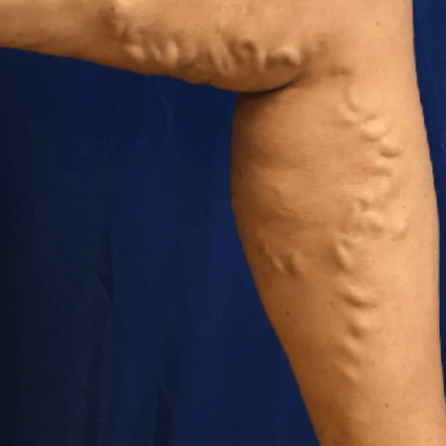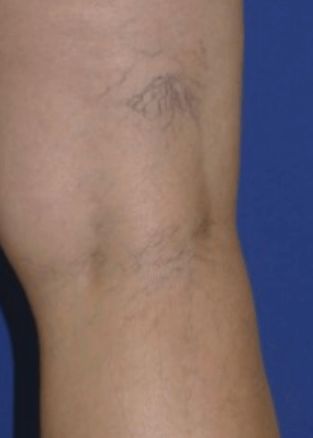Posted December 11, 2019 in Sclerotherapy, Spider Veins, Varicose Veins, Vein Gogh Veins

Varicose veins are large, swollen blood vessels that are found in the legs but can also occur almost anywhere in the lower body during pregnancy. Varicose veins bulge above the skin and create distinctive purplish lumps. Although they may look alarming, they are fairly common and affect approximately 20% of pregnant women.
Varicose veins can develop at any time during pregnancy and tend to get larger and more pronounced as your pregnancy progresses.
Varicose veins are different from spider veins. Spider veins are smaller and superficial, they do not bulge. These are also considered cosmetic.

After giving birth, some varicosities may recede but it is still recommended to get a vein evaluation and an ultrasound done by a specialist.
The extra volume of blood that is produced during pregnancy puts extra pressure on your blood vessels, especially the veins in the legs. The veins in your legs have to work against gravity to push all the extra blood back to your heart, and during pregnancy, there is extra pressure on your pelvic veins. This extra blood and pressure can cause the valves in the veins to malfunction thus causing varicose veins.
While pregnant, there are several things you can do to minimize varicose veins and keep them under control. You can reduce the amount of time spent on your feet and elevate your legs when possible. Also, when exercising do not wear tight-fitting clothing. Be mindful of your weight gain and wear compression stockings to reduce swelling. There are no surefire ways to prevent varicose veins but the above-mentioned tips may help the situation.
Of all the risk factors for varicose veins disease, pregnancy is one of the highest risk factors for chronic venous insufficiency. Other factors include hereditary and standing on feet for long periods of time. ie stewardess, nurses, waiters, cashiers, etc. If you have all three risk factors then you are at very high risk.
Those with varicose veins during pregnancy routinely need ultrasounds during pregnancy to rule out problems, such as large veins and stagnant flow that can occur and afflict those patients with vein disease.
Thrombophlebitis and blood clots can occur in veins and can be heightened during pregnancy. An ultrasound can rule these out and predicate a treatment algorithm.
Venous evaluation to assess your lower extremity leg health is simple and easy at Mountcastle Vein Institute. Your visit will include a focused individual examination and history. Following review and examination, a venous ultrasound will be performed to determine your specific treatment plan. We have an in house ultrasound tech so we can do the evaluation and ultrasound the same day. Dr. Mountcastle will review your ultrasound and the results will be discussed with you at your consultation.
Dr. Mountcastle is in-network with most insurances and vein treatment is typically covered by insurance. Our office will contact your insurance for the authorization, once we have the authorization we will give you a call to schedule. Typically we can get patients in with in the same or next week. We will also check your benefits and provide you with your expected out of pocket expenses (deductibles, coinsurance, and copays)
If your varicose veins persist after your pregnancy you should schedule a vein evaluation and ultrasound to check for permanent vein damage. Following the evaluation, the doctor will make a treatment plan to erase those painful, bulging, and unsightly varicose veins.
44095 Pipeline Plaza, #430 Ashburn, VA 20147